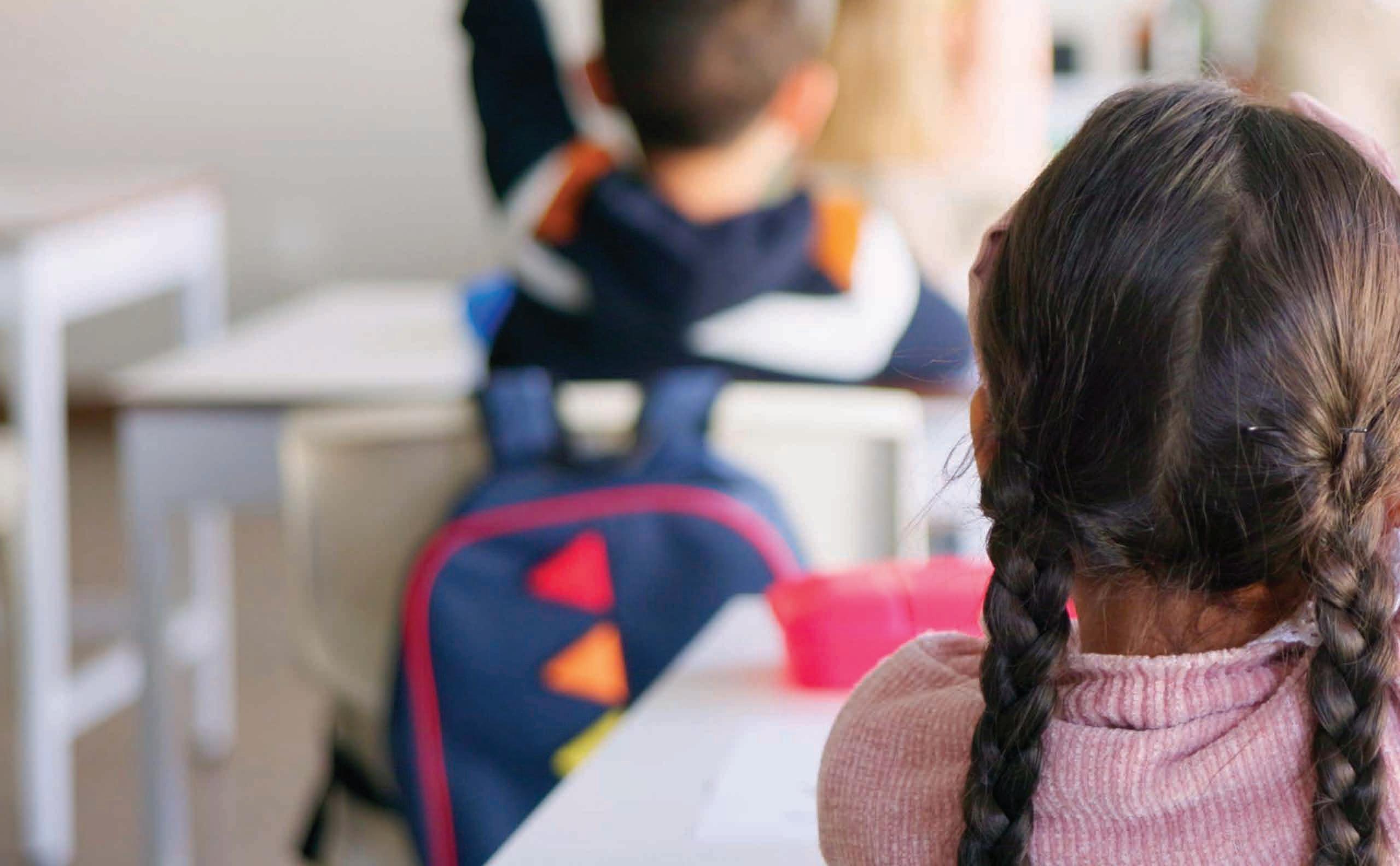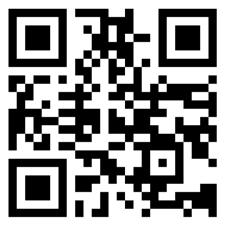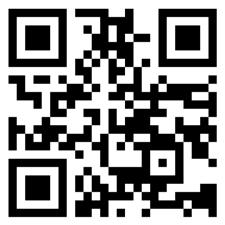

WORKING IN MÉTIS COMMUNITIES
Access to high-quality, culturally relevant, early learning and childcare (ELCC) programs and services are considered vital for supporting Indigenous 1 children’s long-term development and life outcomes (Employment and Social Development Canada [ESDC], 2018). It is well recognized that ELCC programs support children’s emotional, intellectual, spiritual, and physical development in their earliest years of life, which enhances school readiness, leads to improved educational outcomes, and influences health and wellness over the long term. These positive impacts are especially important for “children who are identified as experiencing high levels of disadvantage, neglect or trauma during their early years” and may be at risk of developmental delays (Elek et al., 2020, p. 1).
Key components of high-quality, culturally relevant ELCC programs for Indigenous children and families include: participation in traditional activities,
∙ language revitalization,
∙ family participation in programs, and
∙ family and community involvement in program planning and governance (Elek et al., 2020; Murdock et al., in press).
These components contribute to the development of a strong sense of identity, which is considered a protective factor for Indigenous children and
families, and foster a sense of belonging, security, and resilience (Ezekwem-Obi et al., 2025). They can also help strengthen family bonds and build the family’s capacity to “support the learning and development of their children” (Elek et al., 2020, p. 2).
Additionally, engagement with Indigenous families and communities in program planning and governance helps to ensure that ELCC programs respond to the needs of families and communities. High-quality, culturally relevant ELCC programming is thus an important tool for addressing Indigenous health inequalities.
1 The term ‘Indigenous’ is used in this fact sheet to refer to First Nations, Inuit, and Métis populations inclusively.
sharing knowledge · making a difference partager les connaissances · faire une différence
A mixed methods study conducted by Les Femmes Michif Otipemisiwak – Women of the Métis Nation highlights the importance of having Métis-specific content and language central in ELCC programming for Métis women and 2SLGBTQQIA+ individuals across Canada (Adese & Flores, 2022). Elements of culturally relevant ELCC programming for study participants included land-based learning; the intergenerational transmission of Métis languages, knowledge, and ways of living; and the inclusion of Métis approaches to early learning and child care.
The federal government of Canada affirms these qualities in the Indigenous Early Learning and Child Care Framework, co-developed with First Nations, Inuit, and Métis governments and organizations at the national, regional, and community levels and released in 2018. The framework sets out shared visions, principles, and paths forward to ensure all First Nations, Inuit, and Métis children “have the opportunity to experience high-quality, culturally rooted early learning and child care
programming” (ESDC, 2018, p. 2). The framework articulates distinctions-based approaches to ELCC that holistically support “parents and families to participate in their cultures and languages,” reinforce connections to community, and align with the unique health, education, and social priorities of First Nations, Inuit, and Métis families and communities (ESDC, 2018, p. 3).
However, Indigenous children and families continue to be denied equitable access to highquality, culturally rooted ELCC programming (Gerlach et al., 2021). Some of the barriers include, for example:
∙ lack of transportation,
∙ possible shame experienced by families in the provision of their children’s needs,
∙ distrust of child care environments, lack of appropriate funding for ELCC programs,
∙ lack of child care spaces available, lack of culturally appropriate child care settings,
∙ unaffordability, and
∙ limited family support (Freeborn et al., 2023).
Métis-specific barriers to high quality ELCC programs identified in Adese and Flores (2022) mixed methods study of experiences of Métis women and 2SLGBTQQIA+ individuals across Canada included:
∙ lack of Métis cultural teaching and Métis-specific ELCC programming; lack of care available in one’s community;
∙ lack of affordability and financial supports; long wait lists;
∙ lack of flexible care arrangements;
∙ transportation distances to ELCC;
∙ concerns about the quality of care;
∙ concerns about racism and discrimination; and
∙ lack of specialized care for children with special needs.
Adding to these barriers is the challenge of training and attracting qualified early childhood educators who have the knowledge and skills needed to create a safe and trusting early learning environment that is culturally relevant for Indigenous children and families (Gerlach
et al., 2021; Murdock et al., in press). This fact sheet presents findings from an environmental scan of ELCC training programs and curricula across Canada focused on the training of early childhood educators to work with Métis children, families, and communities. Specifically, it assesses the characteristics of ELCC training programs, including:
mode of course delivery; type of training program;
∙ inclusion of Métis knowledges, perspectives, worldviews, and approaches in curriculum; and
∙ requirements to complete practicums or field placements in a Métis setting.
Relevant programs were identified via an Internet search, using the term “Métis” along with combinations of “early childhood/early learning/child care,” “educator”, and “training programs.” All programs that explicitly stated they were Métis focused, were offered by institutions intended for Métis learners, or could be tailored specifically to a Métis ELCC context were included. Once relevant programs were identified, program and course descriptions were reviewed to identify courses
that were specifically Métisfocused or explicitly stated that Métis content would be covered, and to identify Métis topics covered in those courses. However, since programs often did not specify Métis courses or topics but rather used the more inclusive term “Indigenous”, this analysis includes both Métisspecific and broader Indigenous programs and course content. It is important to note that the language used here in relation to course and program descriptions largely reflects information publicly accessible online. This online information was generally limited, making it challenging to ascertain the degree to which curriculum met the needs of aspiring ELCC learners working in Métis communities. While efforts were made to contact program directors to clarify or gather additional information, these efforts were not always successful.
This work is intended to complement previous work conducted by the National Collaborating Centre for Indigenous Health (NCCIH), funded by ESDC, that involved an environmental scan of ELCC training programs for educators working in First Nations communities across Canada (see Murdock et al., in press).

The ELCC program offered by Rupertsland Institute was the only one of the three programs focused specifically on the training of educators working with Métis children and families.
Métis ELCC training programs
Métis are one of three constitutionally recognized groups of Indigenous Peoples in Canada, along with First Nations and Inuit (Government of Canada, 2024). Métis people can be found living anywhere in Canada, but the majority live in the Prairie Provinces (Statistics Canada, 2022a). While most Métis live in larger urban areas (Statistics Canada, 2022b), they also live in other settlements. However, Alberta is the only region in Canada with a recognized and protected land base of Metis 2 Settlements, governed by Metis and reserved for Metis use (Metis Settlements Appeal Tribunal, 2025). In 2021, Métis constituted the highest proportions of the Indigenous population in Alberta (44.8%), followed by Manitoba (40.8%), and Nova Scotia (40.2%) (Government of Alberta, 2023).
The environmental scan identified only three potentially relevant ELCC training programs across Canada – one offered by Louis Riel Vocational College (LRVC) in Manitoba and two offered in Alberta by Rupertsland Institute and the Riel Institute for Education and Learning. The ELCC program offered by Rupertsland Institute was the only one of the three programs focused specifically on the training of educators working with Métis children and families. The other two ELCC programs were deemed relevant for inclusion because they were assumed to be offered by Métis-led educational institutions, despite these programs being identified as only Indigenous-focused, not Métis-focused. Both the Louis Riel Vocational College (LRVC) and the Riel Institute for Education and Learning were named after prominent Métis political leader – Louis Riel. LRVC also has its origins as an “educational vehicle” for Métis learning (LRVC, 2025a), while the Riel Institute has both First Nations and Métis identified individuals on their Board of Directors.
Louis Riel Vocational College
Louis Riel Vocational College (LRVC), a private postsecondary Indigenous-led institution located in Winnipeg, Manitoba, offers an 18-month, Indigenous Focused Early Childhood Education (IFECE) diploma program. This program – the “first of its kind offered by a private college in Manitoba” (LRVC, 2025b, para. 1) –enables learners to reconnect to the land, language, and Elder teachings.
The ELCC diploma program is not specifically identified as a Métis-specific ELCC training program. It welcomes learners of all backgrounds and adopts a broad Indigenous focus that is inclusive of diverse Indigenous perspectives. The program nevertheless incorporates some Métis culture and history into its courses (R. Hebert, personal communication, April 2, 2025).
LRVC’s IFEC program also requires 17 weeks of practicum; however, learners are not required to complete their practicums in a Métis setting. To enhance accessibility, the program is occasionally offered in an online format (R. Hebert, personal communication, April 2, 2025).
2 While the term ‘Métis’ is accented throughout this fact sheet, when referring to Metis settlements, the term is not accented.
Rupertsland Institute’s ELECT Program
An affiliate of the Otipemisiwak Métis Government, Rupertsland Institute has a mandate to offer education and training programs and services that support its vision for a “’skilled, knowledgeable and self-reliant Métis Nation” (Rupertsland Institute, 2024a). As part of this mandate, the Rupertsland Centre for Teaching and Learning offers an Early Learning Education and Childcare Training (ELECT) program that teaches participants “authentic Métis ways of being and helps early learning educators weave appropriate Métis education into their early learning centres” (Rupertsland Institute, 2024b, n.p.). ELECT is a high quality, in-depth, professional development program that teaches through multiple ways of knowing, using non-colonial pedagogical methods and in ways that nurture Métis kinship, community, and wahkohtowin.3 While the program is open to all Alberta-based early learning educators and those in key positions, priority is given first to applicants who self-identify as Métis, have Métis students in their classroom, and have at least a level 2 or 3 early learning certificate, and then to those in key positions (e.g., daycare/
preschool director, Indigenous lead teachers in public systems, instructors from local colleges).
The ELECT program includes four key components:
1. a Métis Foundational Knowledge Themes certificate,
2. a Michif language certificate,
3. a combined virtual instruction and experiential component, and
4. a final project (A. Tuttle & J. Carson, personal communication, May 15, 2025).
Métis ways of knowing, being and doing are woven throughout every component.
The Métis Foundational Knowledge Themes certificate course, developed in collaboration with community members, Elders, and Knowledge Holders, forms the basis of curriculum, grounding all student learning in diverse Métis perspectives. The certificate course is freely available online for asynchronous completion; however, learners in the ELECT program are expected to complete the online course while following the timeline and participate in meaningful engagement activities through synchronous virtual instruction sessions.
The foundational knowledge component takes approximately 40 hours to complete.
The Michif language component can also be taken online asynchronously. While Rupertsland Institute offers both the Heritage (Southern) Michif and Northern Michif dialects to the general public on a Moodle platform, ELECT learners are expected to complete a language certificate course tailored specifically for early learning educators that focuses on the Northern dialect only. This course is delivered through the 7000 Languages platform, which utilizes a more interactive approach and takes approximately 20 hours to complete. Learners participate in online virtual instruction with Métis educators and Michif language holders, allowing for a deeper dive into the language course and the learning of functional uses of the language in an early learning space. In this way, the language program is helping to revitalize Michif – the official language of the Métis (A. Tuttle, personal communication, June 4, 2025.).
The virtual instruction and experiential learning component focuses on the application of Métis knowledges, perspectives, and approaches into ELCC settings. It enables Métis
3 The Cree term “wahkohtowin” encompasses the importance of kinship among family, extended vfamily, and relationships between the natural and spiritual worlds.
educators to enrich and deepen their learning through weekly virtual instruction, integration of community voices and Métis-specific ELCC resources, adaptation of the Foundational Knowledge Themes to early learning spaces, and participation in culture-based experiential learning opportunities. These experiential learning opportunities take place in Métis Crossing, a unique Métis cultural centre located near Smoky Lake, Alberta, about 1.5 hours northeast of Edmonton, that offers Métis cultural exhibits, art installations, historic attractions, outdoor activities, and immersive, land-based experiences rooted in Métis culture and history (Métis Crossing, 2025).
Learners are also required to complete a final project involving the creation of Métis-centred early
learning resources that highlight Métis knowledge, culture, and ways of being, knowing and doing. These resources become part of Rupertsland Institute’s extensive collection of Métis resources for early learners and educators, which are accessible to ELECT graduates. Upon completion of all program components, learners will be awarded Rupertsland Institute’s ELECT certificate.
Accessibility to the ELECT program is enhanced by several means. First, as already indicated, much of the program is available online in an asynchronous format or in virtual class delivery. Second, the program is offered via two options – a year-long program, spanning June to March, and a summer intensive program, running from May
to July (A. Tuttle, personal communication, June 4, 2025). While both of these options require completion of both the 40-hour Métis foundational knowledge and 20-hour language online components of the program, as well as the Métiscentred early learning final project, the two streams differ in terms of the number of weekly virtual meetings and experiential learning opportunities at Métis Crossing that learners participate in. Learners in the full-year stream have more weekly onehour virtual meetings than those in the summer intensive program. They also participate in five in-person weekend training sessions at Métis Crossing, while summer intensive learners only participate in one weekend and one summer mid-week training session. Third, individuals who are accepted into the program

are eligible for reimbursement for program costs through Alberta’s Childcare Grant Funding Program, up to 45 hours of release time (approximately $700). Upon completing the ELECT program, early learning educators may apply for this grant, including a copy of their certificate of completion with their application (A. Tuttle, personal communication, May 15, 2025). Qualified Métis learners may also receive some additional reimbursement from the Otipemisiwak Métis Government for travel and supply costs associated with Métis early learning education.
Riel Institute for Education and Learning
The Riel Institute for Education and Learning, located in Calgary, Alberta, offers an Indigenous Early Learning and Childcare Certificate program, with funding available for eligible learners; however, it is unclear from the program description whether it is targeted specifically at the training of ELCC educators working in Métis communities or for Indigenous learners generally (Riel Institute for Education and Learning, 2023).
Offered through a combination of integrated on-site classroom theory, instruction, and offsite practical training, the program requires completion of 17 courses, of which two
are specifically focused on an Indigenous ELCC context (Indigenous Studies; Teaching of the Elders). While course descriptions are not readily accessible online, Trauma Informed Care/Being Trauma Aware likely incorporates some Indigenous content, while several other courses may include some Indigenous content, including Family Dynamics or Child Abuse and Family Violence. An off-site practicum must be completed; however, there appears to be no requirement for students to complete the practicum in a Métis setting.
Métis content in ELCC curriculum at other postsecondary institutions
Students wishing to work in Métis ELCC contexts may also choose to complete their training at any number of post-secondary institutions across Canada that have programs targeted specifically at Indigenous populations or require students to complete Indigenous-specific courses; however, the degree to which their curriculum fully meets the needs of Métis communities is generally unclear due to a tendency to focus on Indigenous populations generally in course and program descriptions (for details about these programs, please refer to Murdock et al., [in press]). Murdock et al. did
find that some bachelor’s degree programs provided opportunities to learn about Métis children and ELCC contexts through elective options. For example, Brandon University’s Bachelor of Education – Early Years Route offers electives in Michif language, the education of the Aboriginal/ Métis child, and strategies for teaching Aboriginal/Métis children. Likewise, the University of Saskatchewan (n.d.) offers a teacher education program that can be tailored to an Indigenous ELCC context, with a wide array of electives that incorporate Indigenous content. This includes EIND 380, which incorporates the cultural arts of First Nations people, Inuit, and Métis people into school programs.
Most certificate (first year) and diploma (second year) ELCC training programs offered at mainstream, publicly-funded, post-secondary institutions across Canada require completion of field experiences or practicums, which may be completed in a Métis setting. However, these types of programs often incorporate little Métis or Indigenous perspectives, worldviews, or approaches, and would entail aspiring students to leave their home communities to pursue their education (Murdock et al., in press).

Conclusion
This study identified only three ELCC training programs across Canada that appear to be targeted specifically at the training of educators working with Métis children and families – two in Alberta and one in Manitoba. Of the three programs, two clearly stated they offered distance delivery or virtual class instruction (in the case of LRVC, it was only occasionally offered), while one did not. Thus, individuals seeking Métis-specific ELCC training outside these areas may have to travel considerable distance from their home communities to access the training. Other program features that enhanced accessibility for aspiring Métis ELCC educators included funding supports and/or reimbursement of incurred costs (two programs) and a condensed course offering (one program).
The degree to which the training programs incorporated Métis-specific curriculum varied widely across the three programs. The ELECT program clearly incorporated the most Métis curriculum, including Métis language and culture, Indigenous pedagogy, and immersive land-based learning experiences. These components align well with characteristics identified as features of highquality, culturally relevant ELCC programs for Indigenous children and families, both in research (Elek et al., 2020; Murdock et al., in press) and in policy (ESDC, 2022). LRVC’s IFECE Program incorporated some of these characteristics, explicitly stating that Métis history and culture were incorporated, while the Riel Institute for Education and Learning states only that their curriculum incorporates Indigenous knowledge and traumainformed practice.

Outside these three Indigenous-led programs, opportunities for aspiring ELCC students to learn about Métis ELCC contexts was extremely limited. While some mainstream, publicly funded postsecondary institutions across Canada did offer some opportunities to learn about Indigenous cultures, worldviews, and approaches in ELCC contexts, these are likely not adequate for equipping ELCC educators with culturally appropriate skills and knowledge to work with young Métis children and families (please refer to Murdock et al. [in press] for more detailed information about these programs). Métis-specific ELCC training programs are much better suited for this purpose. There is thus a need to address barriers to accessing culturally appropriate training to build the capacity of ELCC educators to work with Métis children and families and thus enhance access their access to high
quality, culturally appropriate, early learning and childcare opportunities. This includes:
∙ creating more Métis-led ELCC training programs in underserviced regions, enhancing access to community-based and culturally relevant distance learning opportunities, and
∙ better integrating Métis perspectives into mainstream programs.

References
Adese, J., & Flores, J. (2022). “I want to see more culturally sensitive environment”: Métis women and 2SLGBTQQIA+ parent experiences and perspectives on Indigenous early learning and child care (IELCC). Les Femmes Michif Otipemisiwak – Women of the Métis Nation.
Elek, C., Gubhaju, L., Lloyd-Johnsen, C., Eades, S., & Goldfeld, S. (2020). Can early childhood education programs support positive outcomes for Indigenous children? A systematic review of international literature. Educational Research Review, 31, 100363.
Employment and Social Development Canada (ESDC). (2018). Indigenous Early Learning and Child Care Framework. Government of Canada. https://www.canada.ca/en/ employment-social-development/programs/indigenousearly-learning/2018-framework.html
Ezekwem-Obi, A., Blythe, S., & Grace, R. (2025). “Your culture is in you”: Cultural identity and connection for children from diverse backgrounds in care: A scoping review of child perspectives. Child Protection and Practice, 5, 100134.
Freeborn, C., Mardhani-Bayne, A., & Soetaert, C. (2023). Quality and educator dispositions for Indigenous families in the urban early learning and child care context: A scoping review. International Journal of Child Care and Education Policy, 17, 6.
Gerlach, A., Gulamhusein, S., Varley, L., & Perron, M. (2021). Structural challenges and inequities in operating urban Indigenous early learning and child care programs in British Columbia. Journal of Childhood Studies, 46(2), 1-19.
Government of Alberta. (2023). 2021 Census of Canada: Indigenous people. https://open.alberta.ca/dataset/487a729406ac-481e-80b7-5566692a6b11/resource/257af6d4-902c4761-8fee-3971a4480678/download/tbf-2021-census-ofcanada-indigenous-people.pdf
Government of Canada. (2024). Métis. https://www.rcaanccirnac.gc.ca/eng/1100100014427/1535467913043
Louis Riel Vocational College (LRVC). (2025a). About. https:// www.lrvc.ca
Louis Riel Vocational College (LRVC). (2025b). Indigenousfocused early childhood education. https://louisrielcollege.ca/ indigenous-focused-early-childhood-education/
Métis Crossing. (2025). Things to do. https://metiscrossing.com/ things-to-do/
Metis Settlements Appeal Tribunal. (2025). The Metis settlements of Canada. https://msat.alberta.ca/map.asp
Murdock, L., Webb, D., Halseth, R., & Greenwood, M. (In Press). Quality care and young First Nations children: An exploration of optimal learning and development in early childhood settings on reserve. National Collaborating Centre for Indigenous Health.
Riel Institute for Education and Learning. (2023). Indigenous Early Learning & Childcare Certificate. https://www.rielinstitute. com/copy-of-aboriginal-family-youth-sup
Rupertsland Institute. (2024a). Mandates. https://www. rupertsland.org/mandates/
Rupertsland Institute. (2024b). Métis early learning. https://www. rupertsland.org/teaching-learning/metis-early-learning/
Statistics Canada. (2022a). Membership in a Métis organization of settlement: Findings from the 2021 Census of population. Government of Canada. https://www12.statcan.gc.ca/ census-recensement/2021/as-sa/98-200-X/2021006/98200-X2021006-eng.cfm
Statistics Canada. (2022b). Indigenous population continues to grow and is much younger than the non-Indigenous population, although the pace of growth has slowed. The Daily, September 21. https://www150.statcan.gc.ca/n1/en/ daily-quotidien/220921/dq220921a-eng.pdf?st=F7auXhJy
University of Saskatchewan. (n.d.). Indian Teacher Education Program (ITEP): Bachelor of Education (B.Ed.) – Early/ Middle Years. University Catalogue 2025-2026. https:// programs.usask.ca//education/itep/bed-itep-early.php
HOW TO USE THIS FACT SHEET
REFLECT
Talk to others in your community, reflect on the content of this fact sheet, and contemplate how you could make a difference in the health and well-being for yourself, your family or your community.

The NCCIH uses an external blind review process for documents that are research based, involve literature reviews or knowledge synthesis, or undertake an assessment of knowledge gaps. We would like to acknowledge our reviewers for their generous contributions of time and expertise to this fact sheet.

Download publications at nccih.ca/34/Publication-Search.nccih
ENGAGE
Find local friendship centers, community organizations or groups where you can volunteer or participate in healthy positive actions. You too can share knowledge and make a difference in the health and well-being of First Nations, Inuit, and Métis Peoples’ of Canada.
sharing knowledge · making a difference partager les connaissances · faire une différence
SHARE
Request a hard copy of this fact sheet for yourself, your clients, your students or your organization’s event or office. Share the link to this publication through your social media networks. Like, pin or favourite this fact sheet on one of the NCCIH social media channels.







La version française est également disponible sur le site Web ccnsa.ca sous le titre : Programmes de formation sur l’AGJE à l’intention des éducateurs travaillant dans les communautés métisses.
Citation: National Collaborating Centre for Indigenous Health. (2025). ELCC training programs for educatorss working in Métis communities.
This fact sheet is available for download at nccih.ca . All NCCIH materials are available free and can be reproduced in whole or in part with appropriate attribution and citation. All NCCIH materials are to be used solely for non-commercial purposes. To measure the impact of these materials, please inform us of their use.
ISBN (print): 978-1-77368-532-8
ISBN (online): 978-1-77368-533-5


Télécharger des publications à ccnsa.ca/524/Recherche-publication.nccih issuu.com/nccah-ccnsa/stacks
FOR MORE INFORMATION:
UNIVERSITY OF NORTHERN BRITISH COLUMBIA 3333 UNIVERSITY WAY, PRINCE GEORGE, BC, V2N 4Z9
1 250 960 5250
NCCIH@UNBC.CA NCCIH.CA
© 2025 National Collaborating Centre for Indigenous Health (NCCIH). This publication was funded by the NCCIH and made possible through a financial contribution from the Public Health Agency of Canada (PHAC). The views expressed herein do not necessarily represent the views of PHAC. Fact sheet header photo © Credit: iStockPhoto.com, ID 654080290
